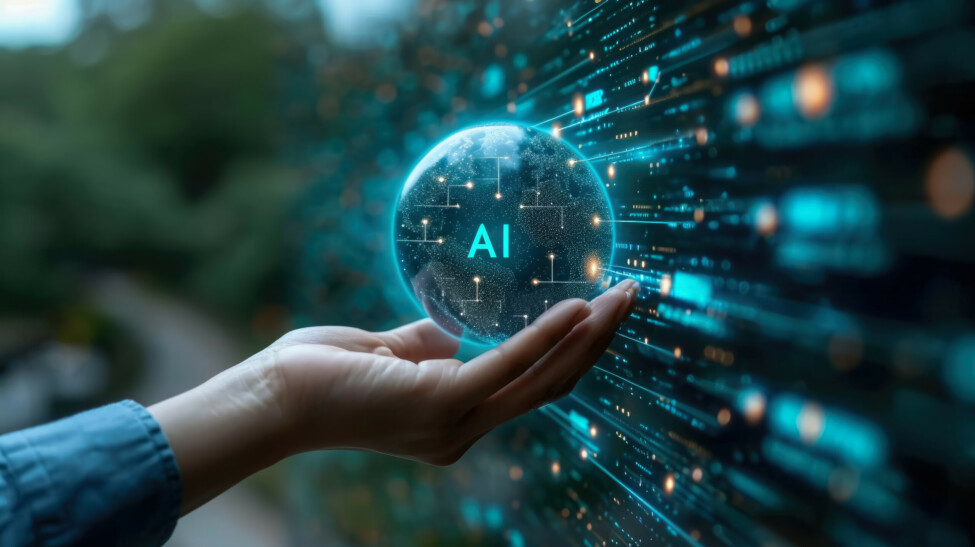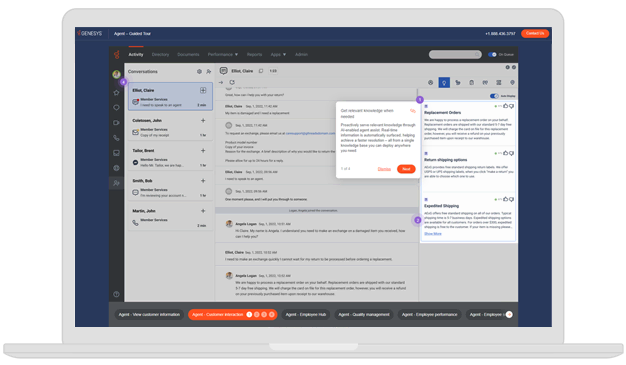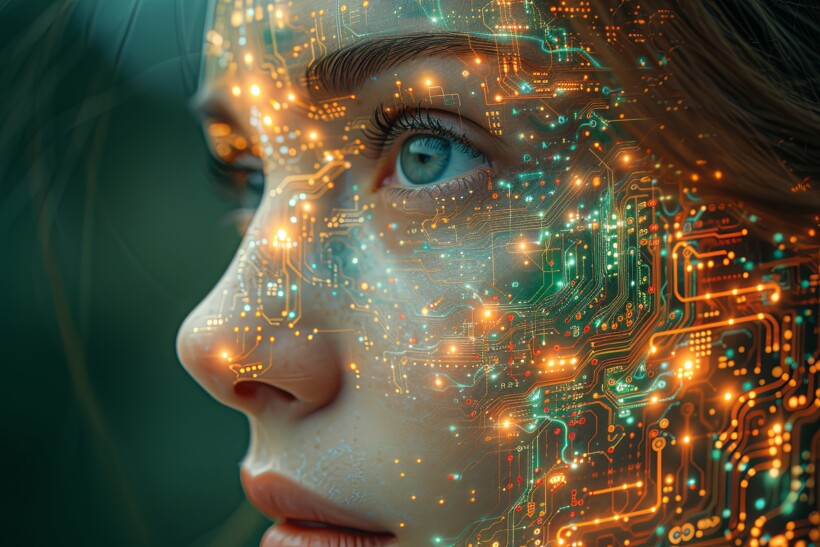Human-AI collaboration refers to the dynamic interaction between people and artificial intelligence (AI) systems to achieve tasks more effectively. Instead of replacing humans, AI augments human capabilities — handling repetitive tasks, analyzing large data sets and providing insights — while humans contribute empathy, judgment and complex decision-making.
In customer experience contexts, this collaboration empowers agents with real-time assistance, improves productivity and enables faster resolutions. When well-integrated, human-AI collaboration can lead to better outcomes than either could achieve alone, fostering innovation and enhancing service delivery.
“Today, contact center agents are facing way more complex queries with higher customer expectations and more pressure to resolve the call — all while working remotely without the benefit of turning the call over to a more experienced peer. And this is leading to increased agent burnout and high turnover rates. AI can bridge the gap created by these new work practices so agents can meet escalating demands.”
Sean Rooney, Director of Product, Agent Copilot, Genesys
Human-AI collaboration in enterprise businesses
Human-AI collaboration refers to people and artificial intelligence (AI) systems working together to achieve better results than either could alone. In enterprise businesses, this partnership allows humans to focus on complex, creative or emotional tasks, while AI handles routine, data-heavy or time-sensitive work.
For example, in a contact center, AI can assist agents by summarizing conversations, suggesting next steps or retrieving relevant information instantly, freeing up the agent to focus on the customer’s needs. In other areas of the business, AI might generate reports, analyze trends or support decision-making, while humans provide judgment and oversight.
This collaboration improves productivity, accuracy and customer experience, while still keeping humans in control of final decisions. It also helps scale operations without losing the personal touch that customers expect.
Effective human-AI collaboration requires the right tools, training and culture. Teams must understand how to trust and interact with AI systems, while businesses must ensure those systems are ethical, transparent and easy to use. When done well, human-AI collaboration becomes a powerful advantage — boosting innovation and performance across the enterprise.






![Resource thumb [hotline]](https://www.genesys.com/media/resource-thumb_hotline.webp)